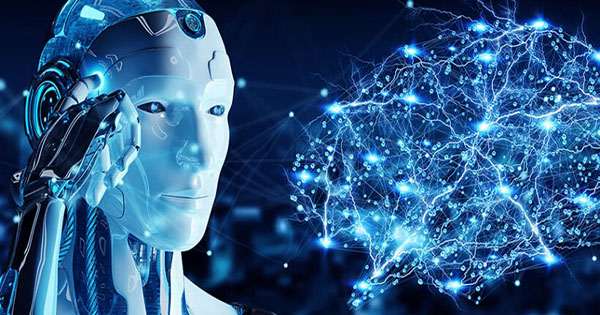What does humanity’s future look like? Will we take risks and venture where no one has gone before? Alternatively, we could wind ourselves in an arid dystopian hellscape, squabbling in the dust over a drop of water. However, it is possible that the future will not be human at all. We are not talking about a hopeless battle with our evolutionary cousins or the eventual split of the species into Eloi and Morlocks. What if we lost our place at the top of the international order not because it was taken away from us, but because we willfully handed it up to a world government, a universal moral code, or even a super-intelligent artificial intelligence?
The “Singleton Hypothesis” describes this vision. It is the theory that humans – or any intelligent species on Earth – will someday exist as a “singleton”: a world dominated by a single decision-making entity, as proposed by futurist philosopher Nick Bostrom. “Whether the singleton hypothesis is valid is an open topic,” writes Bostrom. “In my perspective, it is more probable than not true.”
In fact, according to Bostrom, it is just the last rung on a ladder we have already climbed. When you consider where humanity began and where we are now, the Singleton Hypothesis appears to be inevitable, he claims. “From hunter-gatherer bands to chiefdoms, city-states, nation-states, and now multinational organizations, regional alliances, diverse international governance frameworks, and other facets of globalization,” he explains. “The formation of a singleton is predicted by extrapolation of this tendency.”
True, the Singleton Hypothesis may not be a utopian vision – there are many ways in which it could go wrong. A totalitarian singleton, for example, would leave us with “absolutely no freedom, no privacy, no prospect of escaping, and no agency to manage our lives at all,” according to Tucker Davey, a writer at the Future of Life Institute in Massachusetts. “There was so much paranoia and psychological anguish in totalitarian regimes in the past because you just don’t know if you’re going to get executed for saying the wrong thing,” he told the BBC. “Now assume there’s no such thing as a question, and everything you say is being recorded and examined.”
But Bostrom doesn’t believe his vision has to be quite so terrifying. There are several plausible scenarios in which the Singleton Hypothesis could be true, all of which sound appealing: perhaps, given enough time and resources, everyone on the globe would independently adopt the same moral code, which then counted as a singleton. Perhaps the world united under a global democratic republic, or a “friendly superintelligent machine,” as Bostrom thinks – “provided, of course, that no other entity could endanger its existence or frustrate its plans.”
The Singleton Hypothesis, he claims, maybe the only way to escape a nightmarish future. He points out that if the world is united under a single entity, what is the point of costly and risky arms races or destructive nuclear wars? An all-knowing benevolent supercomputer is the best way to avoid an unequal and inefficient distribution of resources, as well as exponential population increase. “If a singleton is actually needed to overcome [issues like these], and if the prominence of these problems develops over time,” Bostrom says, “Broad support for the development of a singleton could gradually evolve.” “A catastrophic occurrence, such as a war waged with weapons of mass destruction, that highlighted the perils of failure to overcome global coordination challenges could hasten such a development.”
So, how realistic is this scenario? It all relies on what we do next, according to Bostrom. “Some predicted technologies, such as enhanced surveillance (including reliable lie detection) and mind-control technologies, communication technologies, and artificial intelligence,” he says, “might ease the development of a singleton.” That may sound like science fiction right now, but it is actually closer to reality than you might imagine. We are already comfortable with the thought of continually monitored, and mind control is not far behind.
“We’ve seen the rise of filter bubbles in recent years, with people being shunted by various algorithms into believing various conspiracy theories, or even if they’re not conspiracy theories, into believing only parts of the truth,” Haydn Belfield, of the University of Cambridge’s Centre for the Study of Existential Risk, told the BBC. “You can imagine things getting a lot worse, especially with deep fakes and other things, until it becomes increasingly difficult for us as a society to decide these are the realities of the matter, this is what we have to do about it, and then take collective action.”
However, humanity’s story could go in a different direction. According to Bostrom, a singleton-ruled future is less possible if we increase our usage of encryption. The establishment of a single all-powerful entity would be difficult to achieve with less access to information and less centralized control.
Those who fear the singleton may find a reason to be optimistic in this regard. With growing awareness of the dangers of monitoring and manipulation technology, political entities are calling for facial recognition bans and social media platforms to regulate misinformation. If we continue down this path, a singleton – good or bad – may never exist.
Bostrom argues, “Singletons could be beneficial, bad, or neutral.” “In a world with a huge number of independent agencies at the top level, it could solve certain fundamental coordination difficulties that may be unsolvable.” “However, if a singleton goes bad, a civilization as a whole goes terrible,” he says. “Everything is in one basket.”















